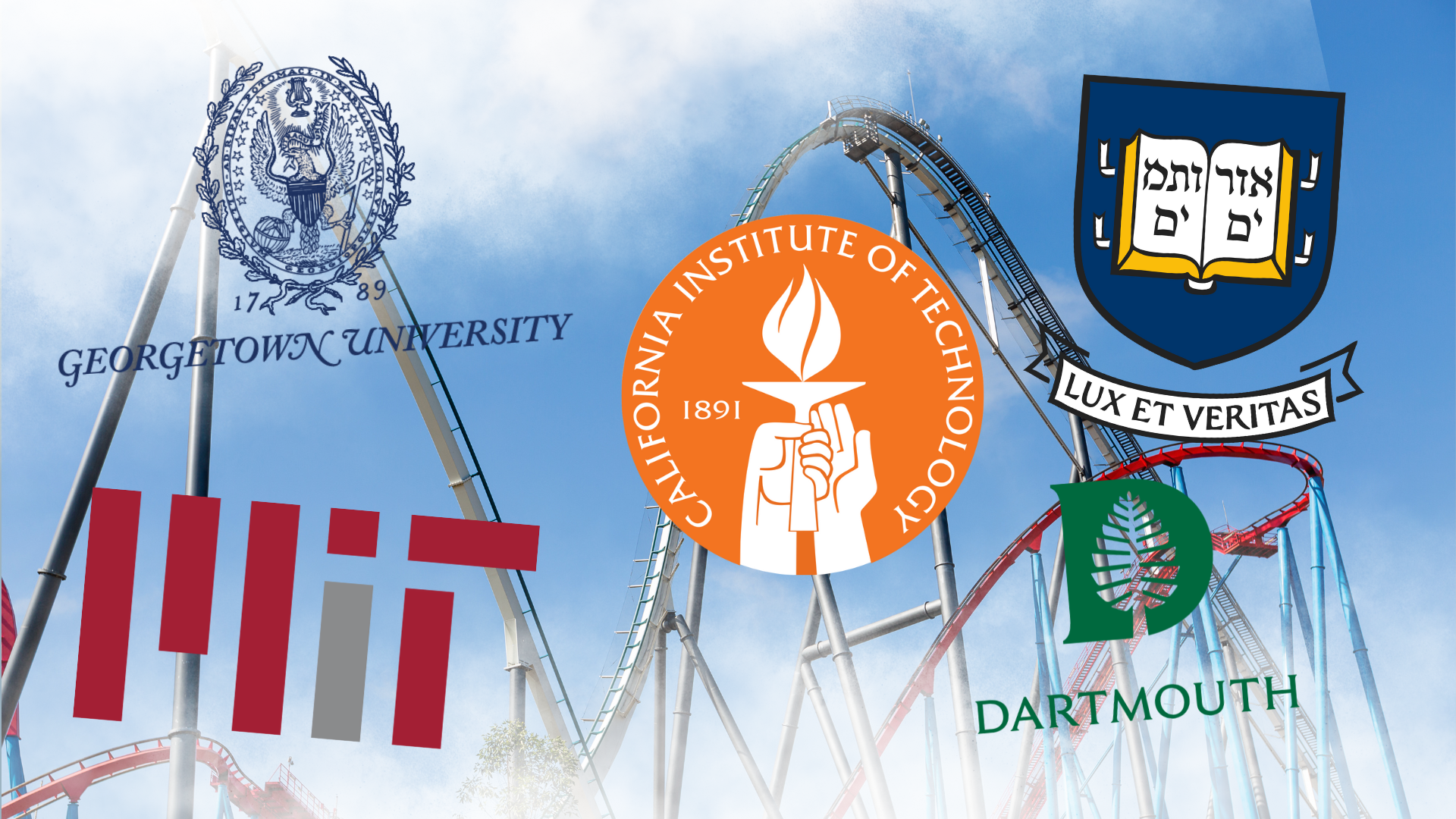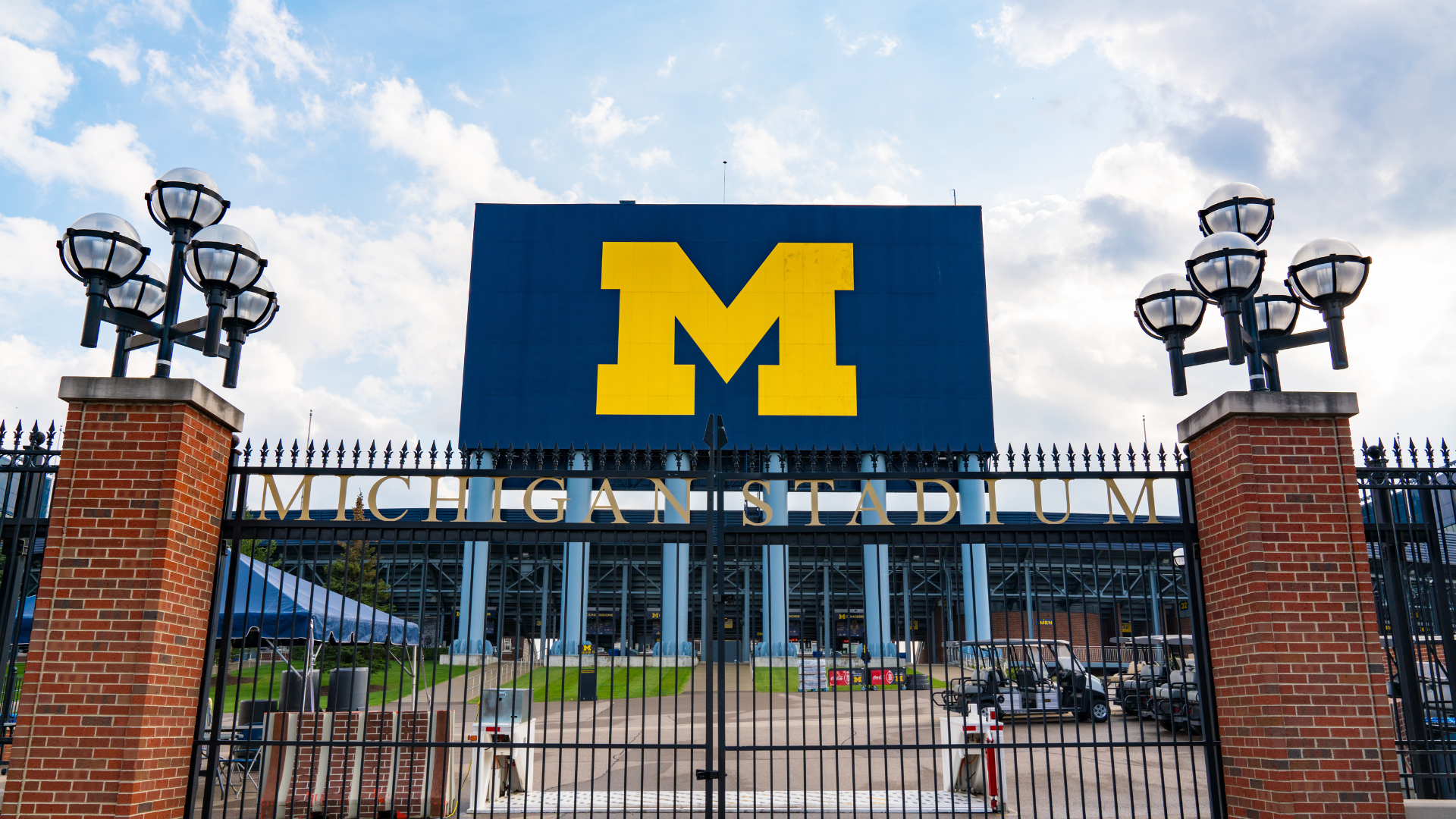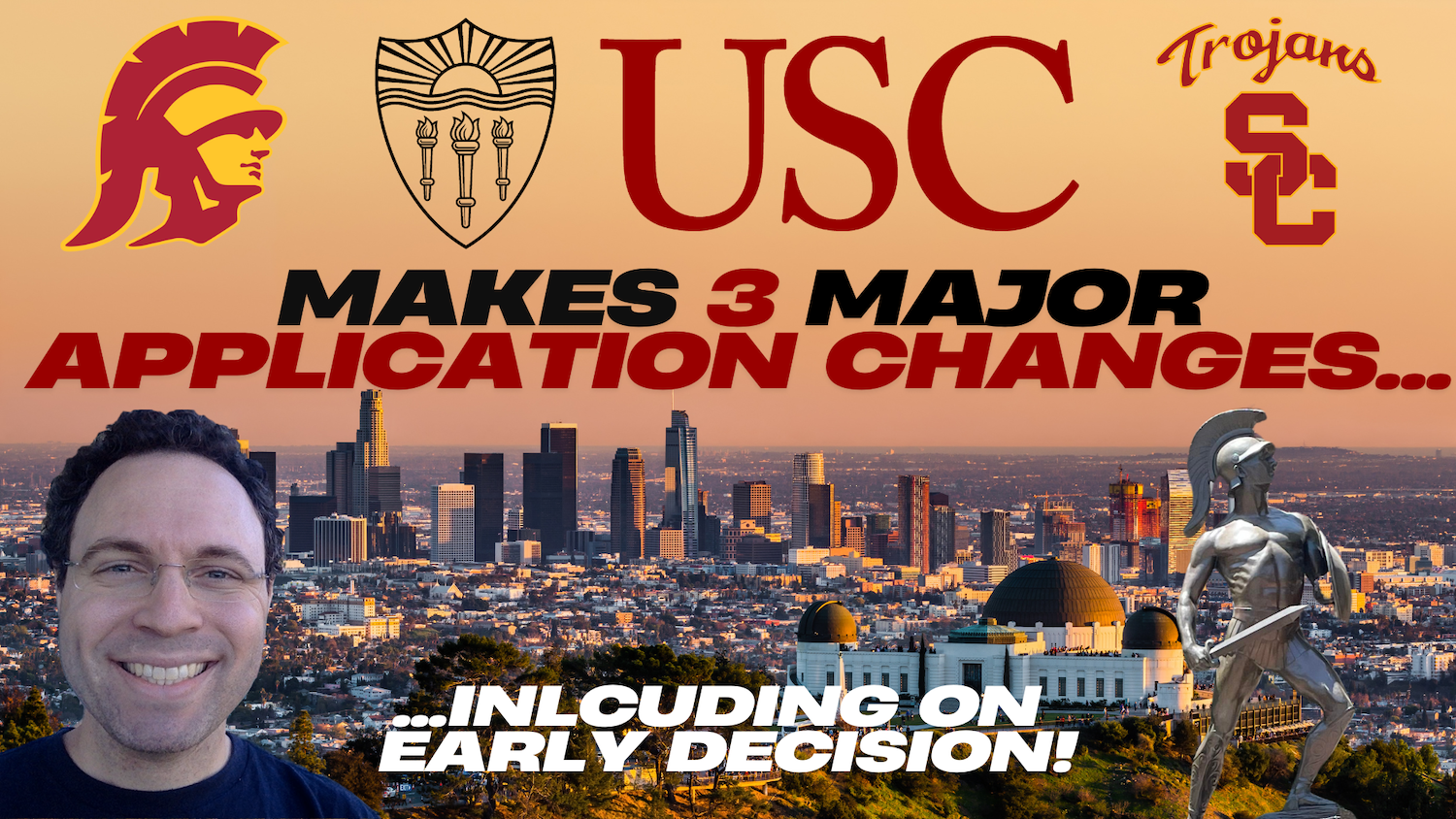 University of Southern California is making three major changes that should really shake up its admissions profile for its Class of 2031 (the high school class of 2027) and beyond.
University of Southern California is making three major changes that should really shake up its admissions profile for its Class of 2031 (the high school class of 2027) and beyond.
In the video above, I dive into three major shifts that could redefine your college application strategy, from enhanced early commitment options to refined testing protocols and simplified application expectations. These changes aren’t just bureaucratic tweaks; they’re designed to empower applicants, boost accessibility, and align with evolving trends in higher education. In the process, they could potential give you a crucial edge in standing out among thousands of hopefuls.

 Modern families often look for ways to turn kids’ screen habits into something productive, engaging, and genuinely useful. Online learning now creates an easy path for kids to explore interests, grow new abilities, and shape confident learning habits. Parents appreciate guidance that fits their child’s pace, while kids enjoy interactive spaces that feel natural and exciting. The right courses encourage curiosity, help kids build real-world strengths, and shift digital time toward meaningful growth. This approach supports creativity, communication, and problem-solving in ways that feel enjoyable rather than forced. Kids learn with purpose, and families gain routines that support long-term development.
Modern families often look for ways to turn kids’ screen habits into something productive, engaging, and genuinely useful. Online learning now creates an easy path for kids to explore interests, grow new abilities, and shape confident learning habits. Parents appreciate guidance that fits their child’s pace, while kids enjoy interactive spaces that feel natural and exciting. The right courses encourage curiosity, help kids build real-world strengths, and shift digital time toward meaningful growth. This approach supports creativity, communication, and problem-solving in ways that feel enjoyable rather than forced. Kids learn with purpose, and families gain routines that support long-term development.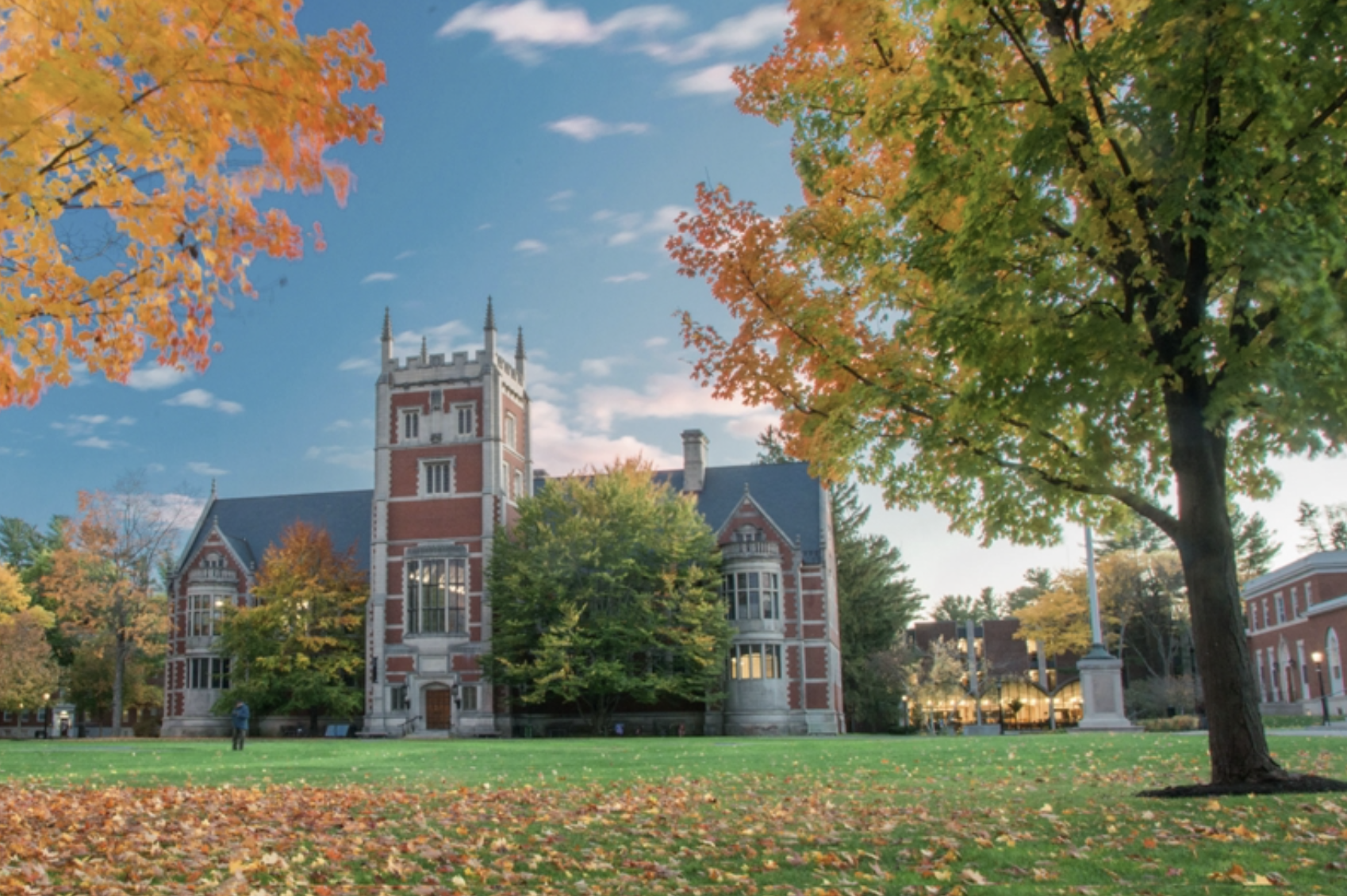 Bowdoin College is preparing to release Early Decision I (ED I) admissions decisions this Friday, December 12, at 7:00 p.m. Eastern Time, according to an update from Senior Vice President and Dean of Admissions and Student Aid Claudia Marroquin.
Bowdoin College is preparing to release Early Decision I (ED I) admissions decisions this Friday, December 12, at 7:00 p.m. Eastern Time, according to an update from Senior Vice President and Dean of Admissions and Student Aid Claudia Marroquin.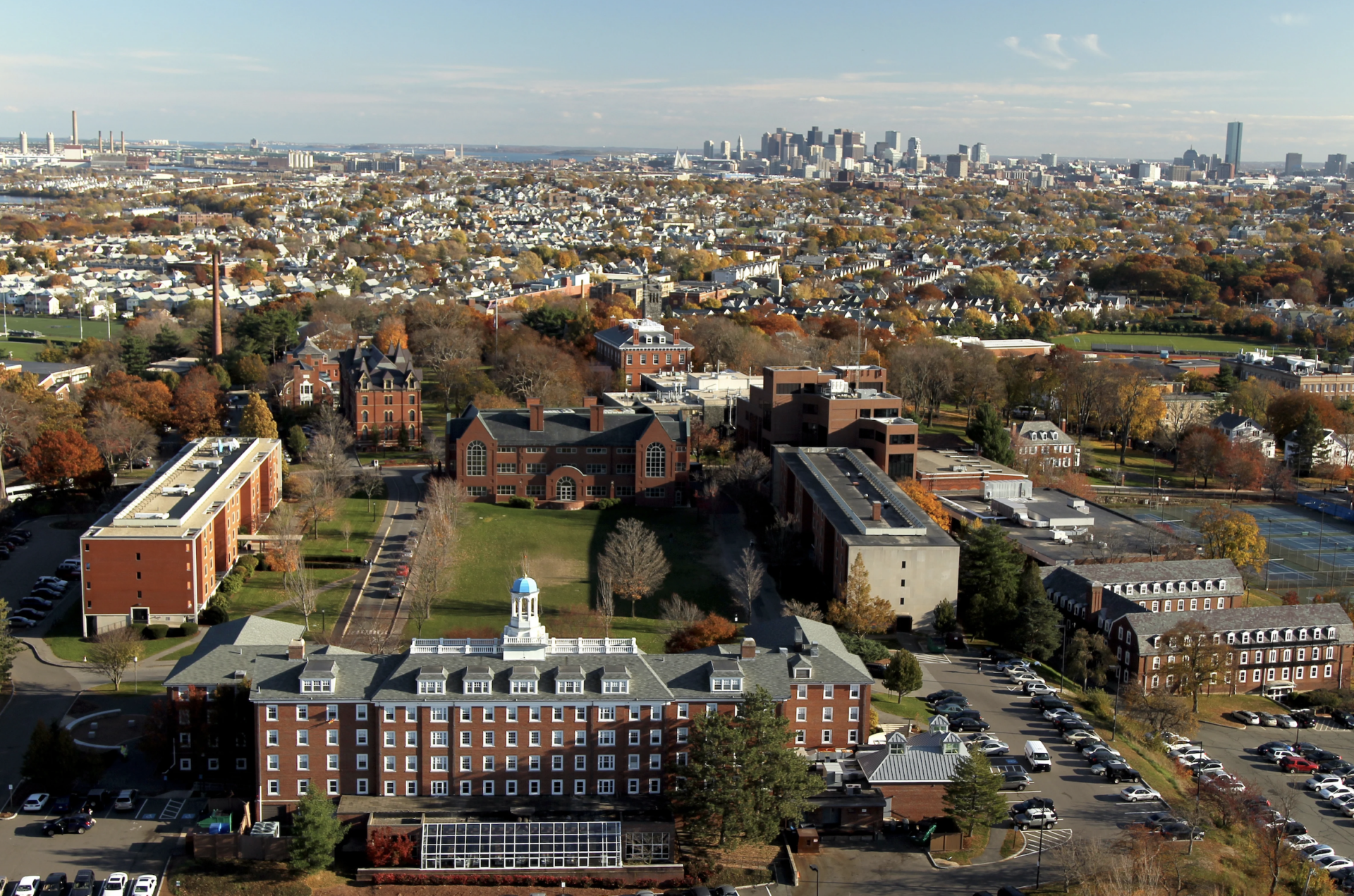 In a continued push to make higher education more accessible, Tufts University has announced its groundbreaking
In a continued push to make higher education more accessible, Tufts University has announced its groundbreaking  The process of applying to colleges often resembles piecing together an intricate puzzle: standardized test scores, extracurricular activities, personal statements, comparison among institutions, and GPAs all play a role. Fortunately, students are not alone in this arduous journey. With appropriate resources and professional insights, the entire undertaking can become far more streamlined—and even put students in control.
The process of applying to colleges often resembles piecing together an intricate puzzle: standardized test scores, extracurricular activities, personal statements, comparison among institutions, and GPAs all play a role. Fortunately, students are not alone in this arduous journey. With appropriate resources and professional insights, the entire undertaking can become far more streamlined—and even put students in control. The 2025-2026 college admissions process is almost upon us. This means it’s an important time for members of the high school Class of 2026 – especially those who want to run the gauntlet this admissions cycle – to be aware of the the five colleges with the most grueling standardized test requirements for first-year admission.
The 2025-2026 college admissions process is almost upon us. This means it’s an important time for members of the high school Class of 2026 – especially those who want to run the gauntlet this admissions cycle – to be aware of the the five colleges with the most grueling standardized test requirements for first-year admission.